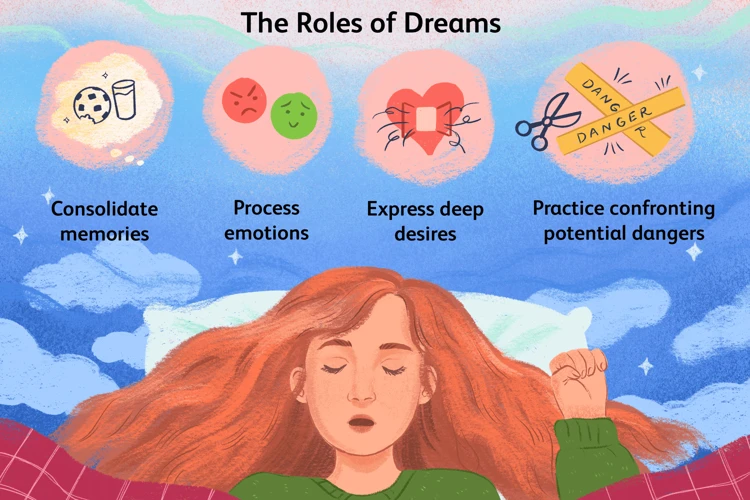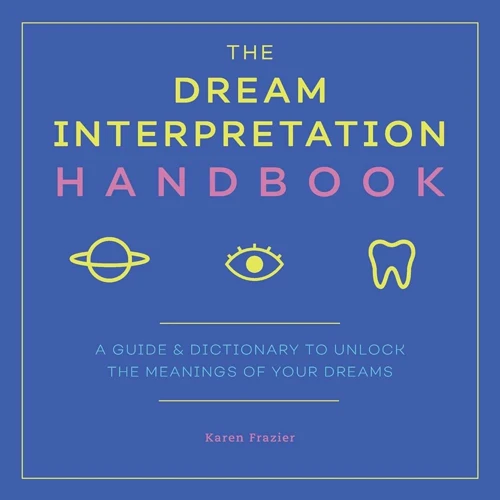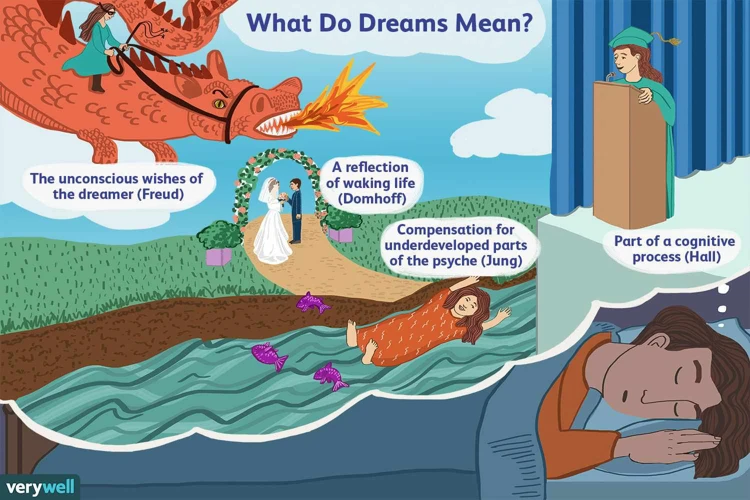Have you ever woken up from a dream where you were falling, only to be left wondering what it all meant? You’re not alone. Falling dreams are incredibly common and can leave us feeling puzzled and unsettled. But fear not, because in this article we will dive deep into the meaning behind these dreams and explore different interpretations from psychological, physical, and emotional perspectives. So, fasten your seatbelt and get ready to unravel the mysteries of your nighttime tumbles.
Psychological Perspective

The psychological perspective provides valuable insights into the meaning behind common dreams about falling. According to psychologists, falling dreams often represent feelings of insecurity or a lack of control in one’s life. These dreams may arise during periods of heightened stress or when faced with significant life changes. Researchers suggest that the sensation of falling in dreams may stem from a deep-rooted fear of failure or a subconscious desire for stability and security. Additionally, falling dreams can be linked to feelings of anxiety and vulnerability, as they reflect our fears and uncertainties in various aspects of our lives. By delving into the psychological aspects of these dreams, we can gain a better understanding of our inner thoughts and emotions.
Physical Interpretation

In addition to the psychological perspective, it is also interesting to explore the physical interpretation of dreams about falling. From a physical standpoint, these dreams may be linked to the body’s sensations during sleep. During the rapid eye movement (REM) phase of sleep, when most dreaming occurs, the body experiences muscle atonia, a state of temporary paralysis that prevents us from acting out our dreams. However, if there is a brief interruption in this paralysis, it can create a feeling of falling in our dreams. This physical sensation can then be incorporated into the dream narrative, leading to the common occurrence of falling dreams. It’s important to note that while the physical interpretation provides a plausible explanation for the sensation of falling in dreams, it may not fully capture the symbolic or metaphorical meaning behind the dreams. To explore these aspects further, refer to the symbolism of dreams about flying.
Emotional Interpretation

Emotional interpretation adds another layer of understanding to the meaning behind dreams about falling. These dreams often reflect deep-seated anxieties and fears that we may be experiencing in our waking lives. Falling can be associated with a sense of vulnerability and a fear of being out of control. When we experience these emotions in our dreams, it may be a manifestation of our subconscious worries and insecurities. Dream researchers suggest that falling dreams can also be connected to the fear of failure and the anticipation of negative outcomes. It is essential to pay attention to the specific emotions that arise during falling dreams as they can provide valuable information about our current emotional state and help us address any underlying issues that need attention.
Anxiety and Insecurity
Anxiety and insecurity are common elements associated with dreams about falling. These dreams often occur during times of stress or when we are facing uncertainties in our lives. The sensation of falling can symbolize a loss of control and the fear of not being able to handle or cope with various challenges. When we experience anxiety and insecurity in our waking life, these emotions can manifest in our dreams as a feeling of plummeting or descending. Psychologists believe that falling dreams may serve as a reflection of our subconscious worries and insecurities, allowing us to process and confront these emotions in a symbolic way. It is important to acknowledge and address these feelings in order to find inner peace and emotional stability.
Lack of Control
Dreams about falling often symbolize a deep-seated sense of lacking control in one’s life. When we experience these dreams, it can be an indication that we are grappling with situations or circumstances where we feel powerless or helpless. This could manifest in various areas, such as work, relationships, or personal goals. The falling sensation in the dream may symbolize a perceived loss of stability or direction, mirroring our feelings of being off-balance in waking life.
In these dreams, we may find ourselves desperately trying to regain control, flailing or reaching out for something to hold onto. This frantic struggle to regain stability reflects our desire to regain control and find a sense of security. It is important to note that dreams about falling are not necessarily negative; they can often serve as a message from our subconscious, urging us to confront and address the areas in our lives where we feel a lack of control.
To better understand this lack of control, it can be helpful to reflect on the specific circumstances surrounding the falling dream. Are there any particular situations or relationships in your waking life where you feel like you have little influence or agency? Recognizing and acknowledging these areas is the first step towards reclaiming a sense of control and taking proactive steps to regain stability.
Here is a list of possible factors that may contribute to a sense of lacking control in your life:
- Challenging work dynamics
- Financial instability
- Strained relationships
- Health concerns
- Unmet goals or unfulfilled dreams
By identifying the root causes of our lack of control, we can begin to explore strategies and solutions to regain confidence and establish a greater sense of agency in our lives. Remember, dreams about falling serve as a symbolic representation, offering valuable insights into the areas where we may need to assert ourselves and regain control.
Fear of Failure
Fear of failure is a common emotional interpretation of dreams about falling. When we experience these dreams, it can stem from a deep-seated fear of not meeting our goals, disappointing others, or losing our sense of self-worth. Falling represents a loss of control and a sense of helplessness, which mirrors the fear of failure in waking life. This fear can manifest in various areas such as work, relationships, or personal endeavors. The dream may serve as a reminder to address these anxieties and take steps to overcome them. By confronting our fear of failure head-on, we can gain a renewed sense of confidence and resilience, ultimately leading to personal growth and success.
Metaphorical Meaning

In addition to the psychological perspective, falling dreams often hold metaphorical meanings that provide further insight into our subconscious. These dreams can be seen as symbolic representations of significant life changes and transitions. Just as we feel a loss of control and stability during a fall, these dreams may reflect the uneasiness and uncertainty that accompany major shifts in our lives. They can also indicate a fear of losing ground or support, as if we are being left behind or abandoned. Experts suggest that falling dreams could be a manifestation of our anxieties about trust and support systems in our waking lives. By unraveling the metaphorical meaning embedded in these dreams, we can gain a better understanding of our emotions and the challenges we might be facing.
Life Changes and Transition
Life changes and transitions are often associated with dreams about falling. These dreams may occur when we are experiencing significant shifts in our personal or professional lives. Such changes can include starting a new job, moving to a different place, ending a relationship, or even embarking on a new phase of life. Falling dreams in these circumstances may symbolize the uncertainty and fear that come with stepping into the unknown. They can reflect our subconscious concerns about adapting to change and the challenges that may lie ahead. These dreams serve as a reminder to acknowledge and address our apprehensions during times of transition, allowing us to navigate through them with a greater sense of awareness and resilience.
Losing Ground and Stability
- Insecurity: Dreams about falling may symbolize a sense of losing ground and stability in your waking life. They often occur during times of change or uncertainty, such as starting a new job or ending a relationship. These dreams can reflect underlying feelings of insecurity, highlighting the need for a stable foundation.
- Lack of Support: Falling dreams can also indicate a feeling of unsupported or unsteady in your waking life. Perhaps you feel like you lack the necessary support from friends, family, or colleagues, leaving you with a sense of instability. It may be helpful to evaluate your social network and seek out individuals who can provide the support and stability you need.
- Fear of Failure: Falling dreams can be closely related to a fear of failure. They may occur when you are taking on new challenges or pushing yourself outside your comfort zone. The dream may reflect your anxieties about not being able to meet expectations or falling short of your goals. It’s important to recognize that failure is a natural part of growth, and these dreams can be a reminder to embrace the learning experiences that come with it.
Exploring the theme of losing ground and stability in falling dreams can shed light on the underlying emotions and fears that you may be experiencing in your waking life. By addressing these feelings head-on and seeking stability and support, you can regain a sense of grounding and move forward with confidence.
Lack of Support or Trust
One possible interpretation of falling dreams is a reflection of a lack of support or trust in one’s life. These dreams may arise when individuals feel isolated or unsupported in their personal or professional relationships. The sensation of falling can symbolize a fear of abandonment or a sense of being let down by others. It could also indicate a lack of trust in oneself or in the decisions being made. In some cases, falling dreams may stem from past experiences of betrayal or disappointment, where individuals have been let down by those they once trusted. It is important to recognize and address these feelings of insecurity and distrust, as they can affect our overall well-being and relationships. By seeking support from trusted individuals and engaging in open communication, we can begin to rebuild trust and create a more supportive network around us.
Recurring Falling Dreams

Recurring falling dreams can be particularly perplexing and may indicate a deeper significance. These dreams occur when the theme of falling repeats itself over a prolonged period. One possible explanation for recurring falling dreams is that they reflect unresolved issues or recurring anxieties in one’s life. These dreams act as a way for the subconscious mind to alert us to underlying problems that need attention. It is essential to pay attention to the context and emotions surrounding these dreams as they can provide valuable clues. Keeping a dream journal and noting down the details of each recurring falling dream can help identify patterns or triggers. It is important to remember that recurring falling dreams should not be dismissed as mere coincidences or random occurrences. They may hold significant meaning and offer insights into areas of our lives that require attention and resolution. Exploring these dreams with the help of a therapist or dream analyst can provide further clarity and guidance in addressing the underlying issues causing these recurring dreams.
Ways to Cope and Overcome
When it comes to coping with and overcoming the unsettling experience of falling dreams, there are several strategies that can be helpful. First and foremost, confronting your fears is key. Take the time to reflect on the emotions and anxieties that arise during these dreams. By facing them head-on, you can begin to understand and address the underlying issues causing the dreams. Building confidence is another essential step. Engage in self-care practices, set realistic goals, and celebrate your accomplishments, big or small. This can help boost your self-esteem and reduce the impact of fear and insecurity in your dreams. Seeking support, whether it be from friends, family, or a therapist, can also provide valuable assistance in processing and navigating the emotions associated with falling dreams. Remember, you are not alone in this experience, and reaching out for guidance can make a significant difference in your ability to cope and overcome.
Confronting Your Fears
Confronting your fears is a crucial step in overcoming the unsettling dreams of falling. These dreams often reflect deep-seated anxieties and insecurities that need to be addressed. One effective way to confront your fears is by acknowledging and accepting them. Take the time to reflect on the specific fears or concerns that arise during your falling dreams. Are you afraid of failure? Do you feel out of control in certain areas of your life? Once you identify these fears, it becomes crucial to challenge and reframe them. Replace negative thoughts with positive affirmations and visualize yourself overcoming obstacles with confidence. Another helpful approach is gradually exposing yourself to situations that trigger your fears, allowing yourself to experience them in a controlled environment. This technique, known as exposure therapy, can help desensitize you and build resilience. Remember, facing your fears head-on may be uncomfortable, but it is an essential step towards reclaiming your inner strength and finding peace.
Building Confidence
Building confidence is a crucial step in overcoming the fear associated with falling dreams. When we lack confidence, we tend to doubt our abilities and feel more vulnerable to failure or loss of control. To address this, it’s essential to work on boosting self-esteem and self-belief. One effective strategy is setting achievable goals and gradually challenging ourselves to accomplish them. Each small success builds confidence and reinforces the belief that we have the capability to overcome obstacles. Additionally, practicing self-care and nurturing our mental and emotional well-being can contribute to increased confidence. This may involve engaging in activities that bring joy and fulfillment, surrounding ourselves with positive and supportive individuals, and seeking professional help if needed to address underlying issues that may be hindering confidence. By taking intentional steps to build confidence, we can empower ourselves to confront the fears and anxieties that manifest in falling dreams.
Seeking Support
Seeking support is an essential step in coping with and overcoming the recurring falling dreams. It is crucial to remember that you don’t have to face these dreams alone. Support can come from various sources, such as friends, family, or even professional therapists. Sharing your dreams and discussing them with someone you trust can provide a fresh perspective and insights that you may have overlooked. Connecting with others who have experienced similar dreams can also be helpful, as it creates a sense of validation and reassurance.
One way to seek support is by joining online forums or support groups where individuals share their experiences with falling dreams. These platforms provide a safe and non-judgmental space to discuss dreams, ask questions, and gain support from others who can relate. Additionally, some therapists specialize in dream analysis and can help you explore the deeper meaning behind your falling dreams.
When seeking support, it’s essential to find someone who listens actively and offers empathy and understanding. They should create a supportive environment where you feel comfortable expressing your emotions and fears. Remember, seeking support is not a sign of weakness but a proactive step towards better understanding yourself and finding strategies to overcome these dreams.
Ultimately, by reaching out for support, you can gain valuable insights, perspective, and coping mechanisms to navigate the perplexity of recurring falling dreams.
Conclusion
In conclusion, dreams about falling hold significant meaning and can provide valuable insights into our subconscious thoughts and emotions. From a psychological perspective, these dreams often indicate feelings of insecurity, a lack of control, or fear of failure. They may stem from anxieties and uncertainties in our waking lives. Physically, falling dreams can be a result of physiological sensations during sleep. Emotionally, they may reflect our fears of losing ground, stability, or support. It’s important to remember that dream interpretation is subjective and can vary from person to person. However, if you find yourself experiencing recurring falling dreams that cause distress, it may be beneficial to seek professional help or counseling to further explore and address any underlying issues. Don’t fear the fall, but rather, use it as an opportunity for self-reflection, personal growth, and empowerment. Dream on, and may your descents lead to new heights of understanding.
Frequently Asked Questions
1. Why do I keep having dreams about falling?
Recurring dreams about falling are often a manifestation of unresolved emotions or fears in your waking life. They may indicate a lack of stability or control in certain areas of your life that need to be addressed.
2. Are falling dreams a sign of impending danger?
No, falling dreams are typically not prophetic or a direct prediction of imminent danger. They are more symbolic and reflect your subconscious emotions and concerns.
3. Can falling dreams cause harm or physical sensations?
While falling dreams can sometimes feel incredibly real, they cannot physically harm you. However, you may experience a brief jolt or jerk as you wake up, known as a hypnic jerk, which is a natural response to the sensation of falling.
4. Do only anxious or insecure people have falling dreams?
No, falling dreams can occur in anyone, regardless of their overall level of anxiety or insecurity. They are a common experience and can be triggered by various life situations and emotions.
5. Can falling dreams be interpreted in different ways?
Yes, falling dreams can have multiple interpretations. The meaning can vary depending on the individual’s personal experiences, emotions, and the context of the dream. It is essential to consider your specific circumstances when interpreting these dreams.
6. Are there any benefits to having falling dreams?
While falling dreams can be uncomfortable, they provide an opportunity for introspection and self-reflection. They serve as a symbolic representation of our fears and anxieties, allowing us to address and overcome them in our waking lives.
7. Can falling dreams be a reflection of past traumas?
Yes, falling dreams can sometimes be associated with past traumas or unresolved issues. They may serve as a way for the subconscious mind to process and heal from these experiences. Therapy or counseling can be beneficial in navigating and healing from such traumas.
8. Can medications or sleep disorders cause more frequent falling dreams?
Yes, certain medications, sleep disorders such as sleep apnea, or disruptions in sleep patterns can influence the frequency or intensity of falling dreams. If you suspect medication or a sleep disorder is affecting your dreams, consult with a healthcare professional.
9. Can lucid dreaming techniques help control falling dreams?
Lucid dreaming techniques, which involve becoming aware that you are dreaming while in the dream state, can offer some control over falling dreams. With practice, you may be able to change the course of the dream or even wake yourself up before the falling sensation becomes too uncomfortable.
10. Do falling dreams have any connection to dreams about flying or being chased?
While falling dreams, dreams about flying, and dreams about being chased are all common, they may have different symbolic meanings. However, they can all reflect underlying emotions and psychological states. Exploring the connections between these dream themes can offer a deeper understanding of your subconscious mind.








